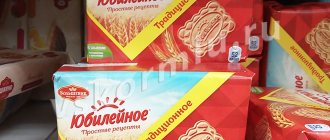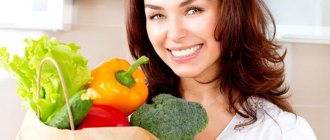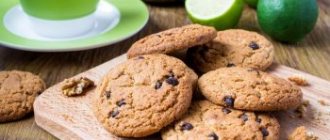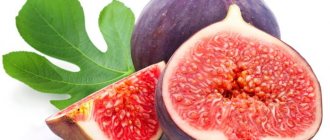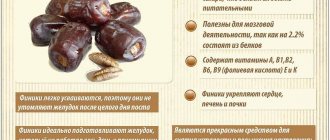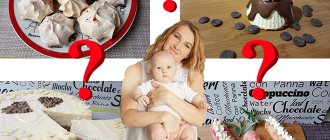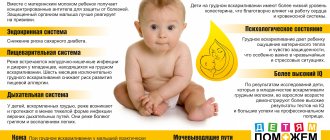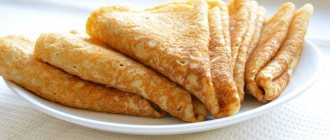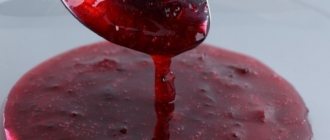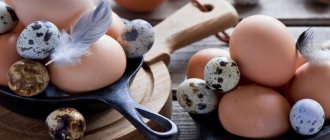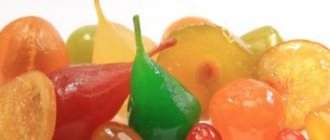Delicious, aromatic and fluffy buns appeal to many people. However, pediatricians do not recommend rushing to introduce baked goods into the diet of nursing mothers, as they can harm the baby and disrupt the lactation process. The safest baked goods are buns without filling, unleavened cookies and brown bread, baked goods with bran or caraway seeds. In this article we will look at whether buns are possible while breastfeeding.
Are there any benefits from buns?
The advantages of flour and bakery products include satiety. One bun will easily and for a long time satisfy your hunger and give you additional energy. It will improve muscle tone and improve mood, and can maintain the elasticity and beauty of the skin.
The beneficial properties of baked goods depend on the composition of the product. Buns made from wheat flour are considered the least healthy. They are cheaper to produce, and the products are fluffy and tasty. Therefore, you will most often find this type of product on the shelves.
Experts advise giving preference to baked goods made from coarse rye flour. They include a large number of vitamins, minerals and nutrients. And the calorie content of products is much lower than that of products made from wheat flour. Rye buns stimulate digestion, fill the body with energy and improve emotional well-being, improve mood and help fight stress.
Bran buns are also useful, as the product contains a high content of fiber and iron. They have a positive effect on the functioning of the intestines and stomach, improve digestion without overloading the internal organs. Due to the iron content, the product has a beneficial effect on blood composition and circulation, and is useful for anemia.
Butter buns include vitamins A and E, vitamin A, sodium and phosphorus, potassium and calcium. This composition improves the condition of the skin and hair, improves vision and strengthens bones, improves the functioning of nerve cells, and restores hormonal and emotional levels. However, such buns contain harmful cholesterol and starch.
Bakery products
Many simply cannot imagine a dinner table without bread products. A wide variety of baked goods delight the eye and whet the appetite. We list the most popular types:
- white wheat;
- black rye or barley;
- with bran, which is based on wholemeal flour;
- malt.
It is impossible to completely exclude bread products from the diet of nursing mothers. They contain many microelements and vitamins, which means they will be excellent companions on the table during breastfeeding. So, cereal products are healthy because they contain:
- complex carbohydrates, which are responsible for saturating the body with energy;
- fiber and vegetable protein;
- B vitamins, which help normalize the psychological background of the nursing mother, and, subsequently, the baby.
Bread products improve the functioning of the nervous system, which means it becomes more prepared to deal with stress and can effectively protect the female body. An interesting fact is that the complete absence of baked goods in the diet of a nursing mother, or any woman, increases the chances of becoming the owner of cellulite.
Bread also has harmful properties. Let's list them:
- in baked goods, pies and buns we find a large amount of vegetable fats, as well as eggs and milk, and all this greatly increases the calorie content of the products, therefore, it is very undesirable for mother to eat such food;
- for comparison, 100 g of rye bread contains 190 kcal, and white bread contains more – 230 kcal;
- When buying baked goods in bakeries, keep in mind that they are prepared with sourdough using an improved recipe, which means they contain even more calories.
The above gives grounds to conclude: for the lactation period, it is most advisable to choose bread products baked without the use of sourdough, without spices and other additives. High-calorie foods are not recommended for nutrition during breastfeeding.
Possible harm and danger
Increased gas formation and flatulence, increased colic in a child are the most common reactions in newborns and infants up to three to four months to such products. The presence of sugar, cinnamon and other additives can easily cause an allergic reaction, diathesis and dermatitis in young children.
Food allergies have the following symptoms:
- Swelling, rash on the body, itching;
- Nasal congestion and runny nose;
- Redness and irritation of the eyes, tearing;
- Difficulty breathing caused by internal swelling of the airways;
- Nausea, vomiting and abdominal pain;
- Anxiety and sleep disturbances are additional signs.
If you notice these symptoms in your child, exclude the product from the baby’s diet and consult a doctor. Internal swelling is especially dangerous. For more information on what to do if you have food allergies in children, see here.
In addition, baking provokes excess weight. You need to be especially careful when consuming products made from yeast dough. Yeast in the body can cause a fermentation process, which leads to severe poisoning and disruption of the intestinal microflora.
The effect of buns on the body of mother and child depends on the quality and type of flour, filling and other components. Unfortunately, today's products often contain harmful dyes, preservatives, thickeners and other chemical additives. This composition has a negative impact on health and well-being.
Possible harm from eating buns during breastfeeding
Buns, at first glance, are a safe and natural product. But this is far from true. The most harmful ingredient in such baked goods is yeast. Their use is fraught with disruption of the normal functioning of the mother’s gastrointestinal tract. In a baby, the use of yeast dough by the mother can lead to bloating, increased gas formation and the appearance of pain in the abdominal area (so-called “colic”).
In addition, the presence of sugar in the composition of buns increases the likelihood of allergic reactions to this type of baked goods. They can manifest themselves in the form of skin rashes, anxiety, and sleep disturbances. Allergies to buns in infants are quite common.
The negative impact of such buns on the figure of a young mother is also known. Calorie content depends on the composition and type of product, but in most cases, its indicators remain at a high level. Frequent consumption of such baked goods can noticeably affect a woman’s weight and appearance.
Buns while breastfeeding
In the first 1.5-2 months, it is recommended to avoid baking. After two months, you can try a small piece of a bun without filling. Observe the child's well-being. If a negative reaction occurs, eliminate the product from your diet and consult a doctor. If the baby feels well, a nursing mother can sometimes eat buns.
At first, it is recommended to use dough without eggs and yeast. Use minimal salt and sugar. Baked goods with filling and various additives can be included after the third or fourth month, yeast dough - after four months. At the same time, you can eat up to 250 grams of baked goods per day. You are allowed to eat two to three buns per week.
Choose products made from rye and whole grain flour, bran flour, corn, rice or buckwheat flour. The last three types do not contain gluten and reduce the risk of food allergies. First grade wheat flour is also allowed.
When purchasing, be sure to check the expiration date of the product. By the way, it is better to cook buns at home. If you do buy buns, pay attention to their appearance. High-quality products must have a uniform surface color and a crumb without large pores. Large pores indicate the use of chemical additives to activate yeast.
Eat only fully baked baked goods, as raw dough is not absorbed by the body and has a negative effect on your well-being. A fully baked bun will immediately regain its shape after compression. Uncooked dough will remain misshapen.
If a nursing mother or baby suffers from diarrhea, choose freshly baked buns as they strengthen the stool. Yesterday's baking has a positive effect on digestion, but is not recommended for ulcers and gastritis, problems with the stomach and intestines.
Dough recipes
Since the dough is dangerous because it contains yeast and dairy products, you should give an example of a recipe for successful self-baking. So, homemade baked goods for nursing mothers can be prepared from a product made according to the following recipe:
- Heat 1 glass of low-fat kefir and add 2 teaspoons of sugar, a pinch of salt, 2 tablespoons of vegetable oil.
- Mix everything thoroughly and stir in the flour in small portions - no more than 2.5 cups will be required.
- Knead the elastic dough and roll it into a layer of 1 cm.
- Use baking soda in the amount of 2/3 teaspoon. The amount used is divided into 3 equal parts and gradually added to the workpiece.
- Sprinkle the previously rolled out dough with 1/3 of the baking soda you used. Gently tamp the workpiece and fold it into 3 layers.
- Roll the workpiece into a layer again and repeat sprinkling with soda. Do this only 3 times until the soda runs out.
- Then roll out the dough into a layer, fold it again, and leave it to cook for 40 minutes in a warm place.
The finished dough can be used for baking pies or pies, various buns and other sweets, if breastfeeding-approved products are used. The dough should not be rolled out for a long time or pressed down too much, otherwise the baked goods will not be fluffy.
Puff pastry
From the above, the question arises whether puff pastry can be made for a nursing mother after childbirth, since the general principles for choosing a product for baking are already clear. Experts, and even mothers who breastfeed, say that it is better to avoid puff pastry. This refusal is explained by the presence of butter or margarine in the composition, which cannot be eliminated when preparing puff pastry. It is also noted that there are a large number of recipes with the addition of alcoholic beverages - vodka or beer. Alcohol gives exactly that puff, although it is used in small quantities. There is a recipe for making puff pastry for pizza that a mother who is breastfeeding can try. If the baby does not react to the baked goods consumed, the portion can be gradually increased.
To prepare puff pastry you need to do the following:
- Melt 40 g of margarine in a water bath.
- Add melted margarine and a teaspoon of salt to a glass of warm water.
- Add 0.5 kg of flour in small portions.
- Knead the dough and leave it in a warm place to rise.
A similar recipe is often used for baking pies. Due to the presence of margarine in the dough, baked goods must be consumed in small portions. It is better to feed your child before eating baked goods to avoid troubles as much as possible.
Video
What kind of buns can a nursing mother eat?
- Butter buns are the most common type of buns, which are prepared without filling. It is from this point that it is recommended to introduce various baked goods into the diet of a nursing mother. You can try after two months of lactation;
- Buns contain a large amount of sugar, which can adversely affect the condition of the newborn. Sugar worsens the condition of teeth and skin, causes caries and diathesis, and increases allergic reactions to other foods. Leads to colic, flatulence and indigestion, and diabetes. Promotes the appearance of excess weight. Therefore, you will have to forget about buns until at least the third, or better yet, the fourth month of lactation;
- Buns with poppy seeds are not recommended for consumption until four months after the baby is born. Poppy in large dosages depresses the nerve cells of a newborn, negatively affects development, causes drowsiness and lethargy. You can eat such pastries no more than twice a week;
- Products with raisins are quite safe for children, since dried fruits are easily and quickly digested and do not put a strong strain on internal organs. At the same time, they are rich in vitamins and extremely useful. You can try such buns after the buns, two to three months after the baby is born;
- Cinnamon buns are another popular type of bun. However, it is not recommended for a nursing mother until four to five months, since cinnamon is a strong allergen. In addition, the spice can negatively affect lactation.
Which baked goods do you prefer: homemade or store-bought?
On the shelves you can find a wide variety of all kinds of buns, pies, and cheesecakes. They look and smell great. Sometimes there is no doubt about the freshness of the products. But is it worth buying them for a nursing woman’s diet?
It is advisable to avoid store-bought baked goods during breastfeeding. Yes, it is tasty, but often it contains ingredients that can harm mother and baby. Preservatives, dyes, flavors, yeast, large amounts of sugar, low-quality vegetable fats - all this can cause allergic reactions and intestinal discomfort in infants.
The only thing you can buy in the store is dryers, oatmeal or biscuits. This product is relatively safe. But you need to carefully look at the expiration dates and read the ingredients so that there are no suspicious components.
An exception may be private small bakeries that make good baked goods from natural ingredients and monitor quality. But you need to prepare for the fact that the price of the products will be quite high and not everything from the assortment will be suitable for the menu during breastfeeding.
To be as sure as possible that the quality of the baked goods is high, the correct ingredients are used, and the product is fresh, it is better to cook at home. Yes, it will take time, but the result is worth the effort.
Which dough is suitable for nursing
The key factor when choosing buns is the dough from which they are made. As a rule, manufacturers use wheat flour. But, as we have already understood, it is the least useful and can cause harm. Here you will hardly find natural carbohydrates, fats, proteins, vitamins and minerals. Among other things, such flour is bleached using benzoyl peroxide or the E928 additive, which is extremely dangerous.
In addition, during lactation and for small children, dough made with yeast and using a large number of eggs is not recommended. Yeast increases colic and flatulence, provokes disturbances in stool and intestinal microflora, reduces immunity and slows down metabolism.
Chicken eggs are a strong allergen, so babies often have a negative reaction after eating such buns. In addition, due to the cholesterol content, chicken protein negatively affects the functioning of the heart and blood vessels, leading to diseases of these organs.
By the way, you should never eat raw eggs. They take a long time and are difficult to digest, causing severe stomach upset, digestive problems and flatulence. Raw eggs or with minimal heat treatment provoke pullorosis and other intestinal infections. In addition, they can cause salmonella infection.
For breastfeeding, you can use rye and whole grain flour, flour with bran. First grade wheat flour is allowed. If your baby is allergic to gluten, choose special gluten-free flour. By the way, it is useful when children or mothers are underweight. Gluten-free cereals and flours include corn, rice and buckwheat.
To make buns, choose dough without eggs or yeast. If necessary, you can replace chicken eggs with quail eggs. By the way, yeast dough is an excellent substitute for kefir dough. We offer the recipe for these buns below.
Baking Recipes
Since a young mother is allowed mainly baked dishes, baked goods should also be baked and not fried - fried pies and other sweets are prohibited due to the high content of vegetable oil in the finished product. There are several simple recipes for preparing new variations of previously boring products.
Cottage cheese casserole
Cottage cheese is not only recommended for women in labor, but is also “prescribed” in the daily diet. Often, cottage cheese becomes boring in the first 2 weeks of breastfeeding. To avoid such troubles, it is recommended to make cottage cheese casseroles.
Baking recipes for breastfeeding in the first month include the following casserole option:
- Take 0.5 kg of low-fat or low-fat cottage cheese and place it in a bowl.
- Add one egg and 3 tablespoons of semolina to the cottage cheese. Mix everything thoroughly.
- Now start adding sugar in small portions - constantly taste the resulting mass so that it turns out not sour, but not bland.
- The resulting mixture is placed in a mold previously greased with vegetable oil. You can also use the addition of filling - for example, let it be apples. The peeled slices are laid out on the bottom of the mold, and the curd mixture is laid on top. You can do the opposite - place the apples on top, slightly deepening them into the mass.
- Place in the oven to bake for half an hour at 180 degrees. Lubricate the mass with sour cream when it acquires a firmer consistency - you will get a golden crust.
The finished casserole can be served to the whole family. They are allowed to pour melted honey, syrup or jam over the baked goods. The young mother is forced to refuse this. For baking, you can also use small molds designed for making muffins - you will get wonderful cakes.
Apple muffins
Especially popular are apple muffins, which are allowed for a nursing mother, but in small quantities.
To prepare you will need to do the following:
- Take 4 apples, peel and core them, grate them on a fine grater.
- Now put the resulting slurry into molds, after greasing them with vegetable oil.
- Prepare the filling mixture. To do this, mix 3 eggs, 4 tablespoons of sugar, 5 tablespoons of semolina and 4 tablespoons of low-fat sour cream. The consistency should be medium thick - pour it into the fruit lining in the molds, but not to the edge, because the semolina will swell and rise.
- Bake cupcakes at a temperature of 180 degrees for no more than 20 minutes.
The presented cupcakes are great for children's morning parties and feeding a young mother. Baking is combined with tea or a milk cocktail, which the young mother is allowed to drink in small quantities
From the above, the conclusion suggests itself that baking while breastfeeding is not prohibited - it is only important to take precautions in its use. So, doctors recommend feeding the child until a pleasant tea party. Experts find a relationship between milk production and the emotional state of the mother
Therefore, if you want to eat even a forbidden bun, you should do so. In this situation, they are guided by small portions and precautions when feeding the child.
Experts find a relationship between milk production and the emotional state of the mother. Therefore, if you want to eat even a forbidden bun, you should do so
In this situation, they are guided by small portions and precautions when feeding the child.
Recipe for buns for nursing mothers
- Kefir up to 2.5% fat – 1 glass;
- Flour – 2.5 cups;
- Sugar – 2 tsp. spoons;
- Soda – 1⁄2 teaspoon. spoons;
- Vegetable oil - 2 tablespoons. spoons;
- Salt – 2 pinches.
Lightly heat the kefir, add vegetable oil, salt and sugar. Mix the mixture thoroughly and gradually add flour. Knead and roll out the dough. Divide the soda into three equal portions. Take one part and sprinkle it over the dough, fold it twice, sprinkling each layer with baking soda. Gently roll the dough and leave in a warm place for forty minutes.
As a result, the dough is airy and soft.
We make buns or pies from the mixture; you can put the filling inside. After cooking, the buns turn out fluffy, like those made with yeast dough. At the same time, they are safe for nursing mothers and babies. You will find even more baking recipes while breastfeeding at the link /. Subscribe to our VKontakte group
Homemade baking during lactation: recipes
If mom has time to prepare her own baked goods, this will be the best option for her and the baby. Homemade cookies and pies give you confidence:
- as ingredients,
- product freshness,
- no unsafe additives.
Rice cookies
Cooking time for cookies is 20 minutes. Ingredients:
- rice flour 400–500 grams,
- butter 250 grams,
- sugar - 80 grams,
- soda - 0.5 teaspoon.
Gluten-free rice cookies remain light in color when baked
. Preparation:
- Beat soft butter with sugar and add flour and soda. If you are afraid of causing diathesis, you can reduce the amount of sugar to 50 grams.
- We form round cookies (you can roll out a flat cake and make it into a glass) and place it on parchment.
- If you have time, put it in the refrigerator for 30 minutes.
- Then bake at a temperature of 180–190 oC for 30–40 minutes.
Because We make cookies from rice flour, they will remain light.
Charlotte with apples made from cornmeal
Cooking time for charlotte is 40 minutes. Ingredients:
- corn flour - 200 grams,
- sugar - 200 grams,
- medium-sized apples 3-4 pieces,
- egg - 3 pieces,
- vegetable oil - 1 tablespoon.
Gluten-free apple charlotte made with corn flour is a healthy and tasty product for nursing mothers
. Preparation:
- Beat eggs with sugar for about 2 minutes.
- Then gradually add flour.
- At the end, add a tablespoon of vegetable oil.
- Grease the mold with oil and pour in half the dough.
- Arrange the apple slices and fill with the remaining dough.
- Bake for 30–40 minutes at 180 °C.
Curd cupcakes
Cooking time for cupcakes is 60 minutes. Ingredients:
- cottage cheese 2% – 200 grams,
- sour cream 10% – 50 grams,
- egg - 2 pcs,
- vegetable oil - 2 tbsp. spoons,
- sugar - 200 grams,
- flour - 200 grams,
- soda - 0.5 teaspoon.
Curd muffins are a delicacy that is not contraindicated for nursing mothers
. Preparation:
- Mix cottage cheese and sour cream with a blender.
- In a separate container, beat eggs and sugar for 2-3 minutes.
- Pour cottage cheese, vegetable oil into a bowl with sugar and add soda.
- Mix carefully.
- Fill the muffin tins two-thirds full with dough and bake for 30–40 minutes at 180°C.

